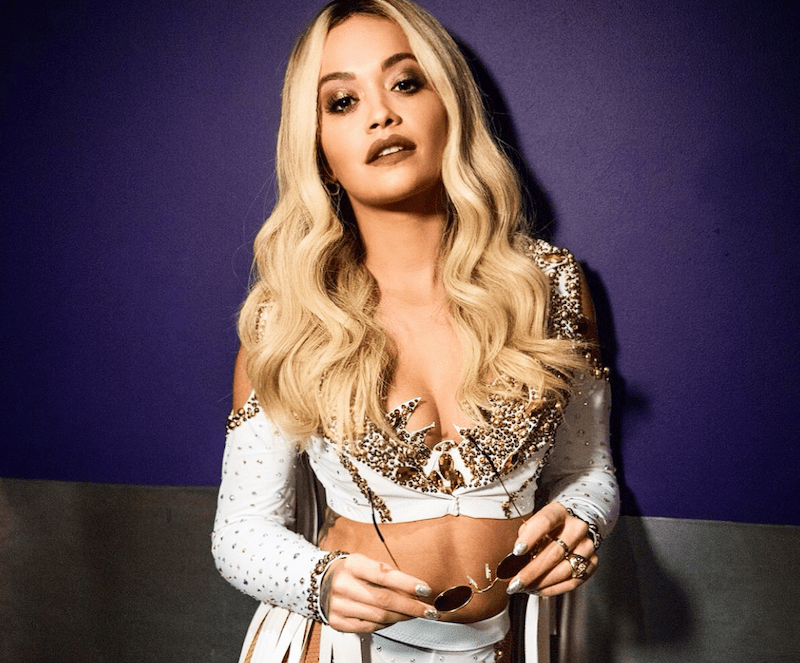A bisexual woman shares her thoughts on Rita Ora’s controversial new single
As a bisexual woman, the controversy surrounding Rita Ora's latest song Girls has been on my mind. Dubbed a "bisexual anthem" by Ora, it’s been commented on by female musicians including Hayley Kiyoko, Kehlani and Shura, some of whom feel it shows a poor representation of queer women for its references to threesomes, booze and drugs, but were they right?
It’s certainly true that bisexual women are starved of any representation which doesn’t cast them as experimenting, promiscuous or playing to the desires of men and this can affect how bisexual people are treated in real life.
So when a song comes along which acknowledges your existence but also feeds into the old familiar stereotypes, it’s hard not to feel conflicted.
Nonetheless, some criticisms have left a sour taste. In particular I can’t help but wonder if lesbian women like Kiyoko are best placed to comment on a song written by a bi woman about her experience of being bi.
Referring to Ora's lyrics about snogging women under the influence, Kiyoko called the song "tone deaf", saying "I don’t need to drink wine to kiss girls, I’ve loved women my entire life".
Is this the lesbian equivalent of saying "I liked it before it became popular"? Why imply there is a hierarchy of same sex feelings?
This perhaps suggests there is only one way to be a queer woman and that bi women need to prove they are "gay enough" to earn their seat at the table, rather than just speaking truthfully about their own experiences. Yes, some women have liked women all their lives but others, for whatever reason, have only realised they liked women later.
Yes, some queer women don't need to drink alcohol to have sex but others like to, just like some straight people. Using alcohol as a means of approaching people you fancy isn't a new concept and it doesn't make Ora's experience of being queer any less valid that Kiyoko's. I'm teetotal so I don’t drink alcohol when I have sex but I’d never suggest that makes me more queer than anyone else – just more socially awkward!
Her comments highlight a pervasive attitude within areas of both the straight and LGBTQ world where bisexual women are sometimes seen as "lesbian lite" rather than having a legitimate sexual identity.
For bisexual women, it’s all too common to be asked by lesbian women that you’re dating if you’re just experimenting, whether you’re genuinely attracted to women and to be probed for your "credentials" to be in a same sex relationship. I’ve been told by lesbian women that being bisexual is disgusting, that bisexual women are not to be trusted, promiscuous and even that they make them sick.
Obviously this is #notalllesbians but it's widespread enough to be a problem and it’s hard to meet a bisexual woman who hasn’t experienced the same. In fact, the sisterhood, solidarity and support I have found from my bisexual friends around these issues has been unparalleled. Only they have been able to understand how it feels to be both part of a community and outside of one, of feeling you need to prove and validate your "gay" experience to the queer world while still experiencing homophobia and biphobia from the straight world.
When it comes to Kiyoko's frustrations, I do get it. Queer women are tired of being seen through one very particular, sexualised lens but we can't police what it means for people to be queer or expect them to pull out their credentials to be accepted under the LGBTQ umbrella. We have to let people express what being queer means for themselves in their own words, otherwise any representation is meaningless.
Opinions expressed by contributors do not necessarily reflect the views of the editors of DIVA magazine or its publishers.
Only reading DIVA online? You're missing out. For more news, reviews and commentary, check out the latest issue. It's pretty badass, if we do say so ourselves.
divadigital.co.uk // divadirect.co.uk // divasub.co.uk
